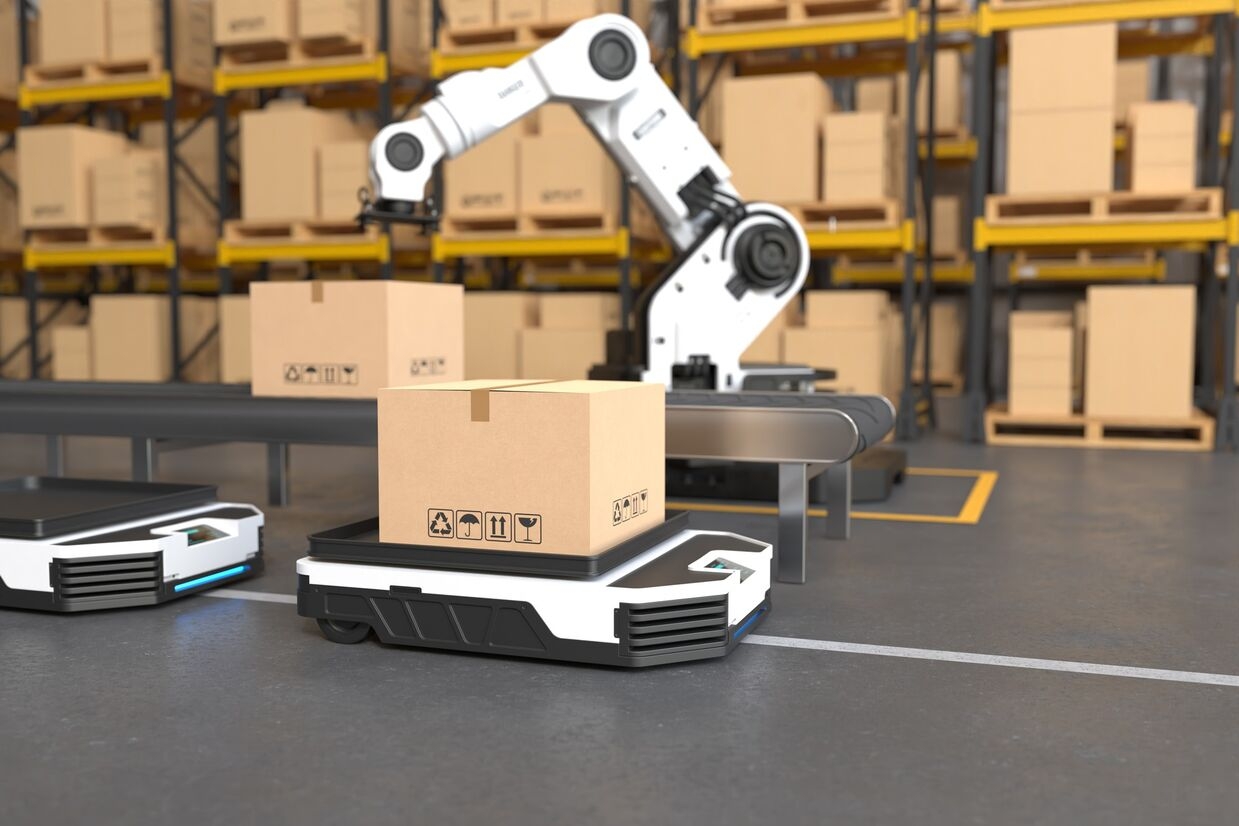How AI is Disrupting Logistics in Nigeria & What Businesses Must Do to Stay Ahead

The AI Revolution in Nigerian Logistics The rise of artificial intelligence (AI) is transforming industries worldwide, and logistics is no exception. From route optimization to demand forecasting, AI is reshaping how goods move across Nigeria. As the sector evolves, businesses must not only embrace AI’s benefits but also prepare for its challenges.
In Nigeria, where logistics plays a crucial role in commerce—from e-commerce deliveries to large-scale manufacturing supply chains—AI presents an opportunity to boost efficiency, cut costs, and improve reliability. However, its adoption comes with hurdles, including infrastructure constraints and workforce adaptation.
How AI is Changing the Logistics Landscape in Nigeria 1. AI is Boosting Efficiency but Also Reshaping Jobs AI-powered logistics systems are helping companies:
Optimize delivery routes, reducing fuel costs and travel time.
Predict vehicle maintenance needs, extending fleet longevity.
Automate warehouse management, minimizing errors and speeding up operations.
However, as AI automates traditional logistics roles, businesses must rethink workforce strategies. Rather than seeing AI as a threat, companies should invest in upskilling employees to manage and interact with AI-driven systems.
Smarter supply chains mean faster and more reliable deliveries. AI enhances supply chain visibility, enabling businesses to predict demand surges and avoid stock-outs. For example, AI-driven inventory management helps retailers and manufacturers keep the right amount of stock at the right time.
However, Nigeria’s infrastructure challenges—such as inconsistent power supply and internet connectivity—could slow AI adoption. Logistics firms must work with tech providers to implement AI solutions tailored to the local environment, such as offline-capable AI tools and energy-efficient data centres.
AI Cuts Costs, But Global Chip Shortages Pose Challenges ai-driven logistics tools depend on semiconductor chips. The ongoing global chip shortage and US-China trade tensions have affected the availability of these chips, increasing costs and delaying AI implementation.
To navigate this, Nigerian logistics firms should prioritize cloud-based AI tools over high-end AI hardware. This reduces reliance on physical AI infrastructure while still leveraging the benefits of machine learning and automation.
AI Regulation & Data Security Will Become CriticalAs AI adoption grows in logistics, businesses must prepare for:
Stricter data security laws to protect customer and shipment information.
Future regulations around autonomous delivery (e.g., drones and self-driving vehicles).
Businesses need to start taking AI governance seriously by implementing strong data protection policies and staying ahead of regulatory changes.
What Nigerian Businesses Must Do Now To stay competitive in an AI-driven logistics sector, businesses should:
Adopt AI early – Start with simple AI tools like automated tracking and predictive analytics before scaling up.
Invest in workforce training – Equip employees with the skills to work alongside AI rather than be replaced by it.
Stay informed on AI developments – Understand how AI regulations, innovations, and global trends will impact logistics operations in Nigeria.
The Future of Logistics in Nigeria is AI-Driven. AI is no longer a futuristic concept—it’s happening now. Businesses that embrace AI-driven logistics will reduce costs, improve efficiency, and gain a competitive advantage in the evolving market.
Are you ready for the AI-driven future of logistics? Let’s discuss in the comments!
News from Our Blog

How do you create compelling presentations that wow your colleagues and impress your managers?

Olivia Ryne
20 Jan 2024

How do you create compelling presentations that wow your colleagues and impress your managers?

Olivia Ryne
20 Jan 2024

How do you create compelling presentations that wow your colleagues and impress your managers?

Olivia Ryne
20 Jan 2024